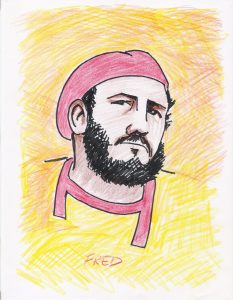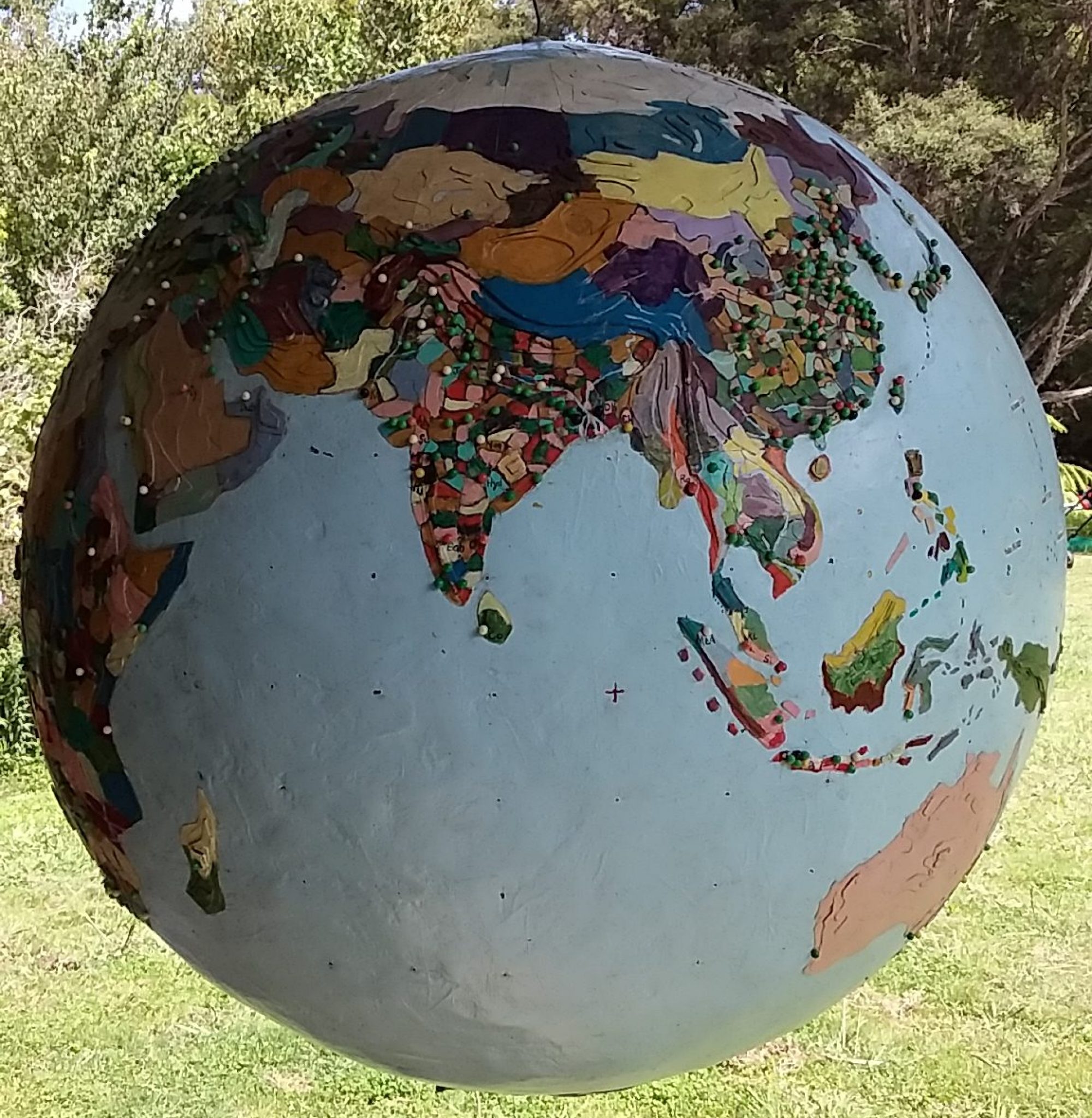
Fidel Castro (1926 – 2016)
When news came out that Fidel Castro had died I got a call from my friend Blackie in Auckland. It has been a sad year for us baby boomers of a certain cultural bent – David Bowie, Leonard Cohen and now Fidel.
In the ‘90s Blackie had worked as a “cowboy carpenter” in Canada and had flown down to Cuba for some holiday sun. “It reminded me of my youth in Northland in the ‘50s,” he said when I asked him about his impressions. “The Cubans I met spoke highly of Fidel and were proud that they had seen off America.” We agreed that Donald Trump’s characterisation of Castro as a “brutal dictator” was predicably shallow and hugely ironic given American dictatorial intervention in Cuban affairs for more than a century.
The flash point for the Spanish-American war was the explosion of the Battleship USS Maine in Havana harbour in 1898. The Americans claimed it was a Spanish mine, but in all probability it was an accidental gas explosion in the coalbunker, igniting the ship’s magazine. “Remember the Maine, down with Spain,” crowed the American media, alleging sabotage and a reason to go to war with Spain and invade Cuba. It was a bit like the “weapons of mass destruction” ruse used by George Bush to invade Iraq.
The defeat of Spain lead eventually to Cuban independence (actually an American protectorate) with the USA awarding itself the lease of a small port in Guantanamo Bay for a coal-bunking station and for “no other use.” Since the 1959 revolution Cuba has disputed American claims to “Gitmo.” Every year America sends a cheque for the lease – which the Cubans decline to bank. Before Fidel, Cuba was described as a brutal kleptocracy with links to American organised crime.
In 1961, CIA trained mercenaries, supported by B52 bombers from Florida, invaded Cuba at the Bahia de Cochinos (Bay of Pigs) south of Havana. Partly due to President Kennedy loosing his nerve and calling off air support the Cuban Army defeated the invaders. America retaliated by locking into place a complete embargo on Cuba for the next fifty years
Under Barrak Obama there has been a softening of US relations towards Cuba. American tourists are now allowed to travel there and George Bush before him allowed US food exports to Cuba. A majority of Americans now favour normalising relations with Cuba, but Donald Trump doesn’t.
Tourism is now Cuba’s number one foreign currency earner. There are two currencies in Cuba, CUCs (for tourists) and CUPs (Cuban Pesos). There are about 25 Pesos to the CUC and there is talk about unifying the two currencies sometime soon. Remittances from the two million Cuban Americans (1.4million in Florida) amount to nearly $US 3 billion per year.
I spoke with Charlotte, a young New Zealand backpacker who had visited Cuba the month before Fidel died. “It was like no other country I have visited, old cars, not many goods in the shops, no advertising, no media celebrities, Fidel is their hero not the Kardashians,” she told me, but things were changing, there was now Internet. “In a park, at night, for a couple of CUCs, I bought a black market password which got me onto WiFi, it was like buying drugs,” she laughed.
Beverley, from Whanganui, who takes tour groups to Cuba, had also noticed changes. “Before people were allowed to open restaurants and takeaways in their own houses there was no rubbish, no plastic in the street, now there is, it’s sad.” She told me what the others had told me. Cuba was safe for travellers and that all Cubans loved Fidel and were proud of their socialist country. “I have a real soft spot for the Cuban people, the music, the relaxed way of life, I hope it all works out for them,” she concluded.
It is predicted that next year Raul Castro will step down and be replaced by Miguel Diaz Canel, who is seen as a pragmatic moderniser. Some worry that there will not be enough money, some that there will be too much, too fast. Some say that meaningful change can only be equivalent to another revolution.
There are a number of pessimistic scenarios: rape by the United States of America (again), theft by the communist party oligarchy (as in the USSR), hyperinflation, armed Cuban Americans led by Ted Cruz and Marco Rubio claiming their lost property back and Havana turns into another Miami.
Optimists pray for a soft landing and sketch out a more hopeful scenario: normalisation with America, a high-speed car-ferry to Key West in Florida (140km from Mariel), creative and meaningful work to progress careers, building on Cuban advances in health and education, tourism based on their built heritage and their natural environment – preserved by Fidel’s conservation initiatives.
